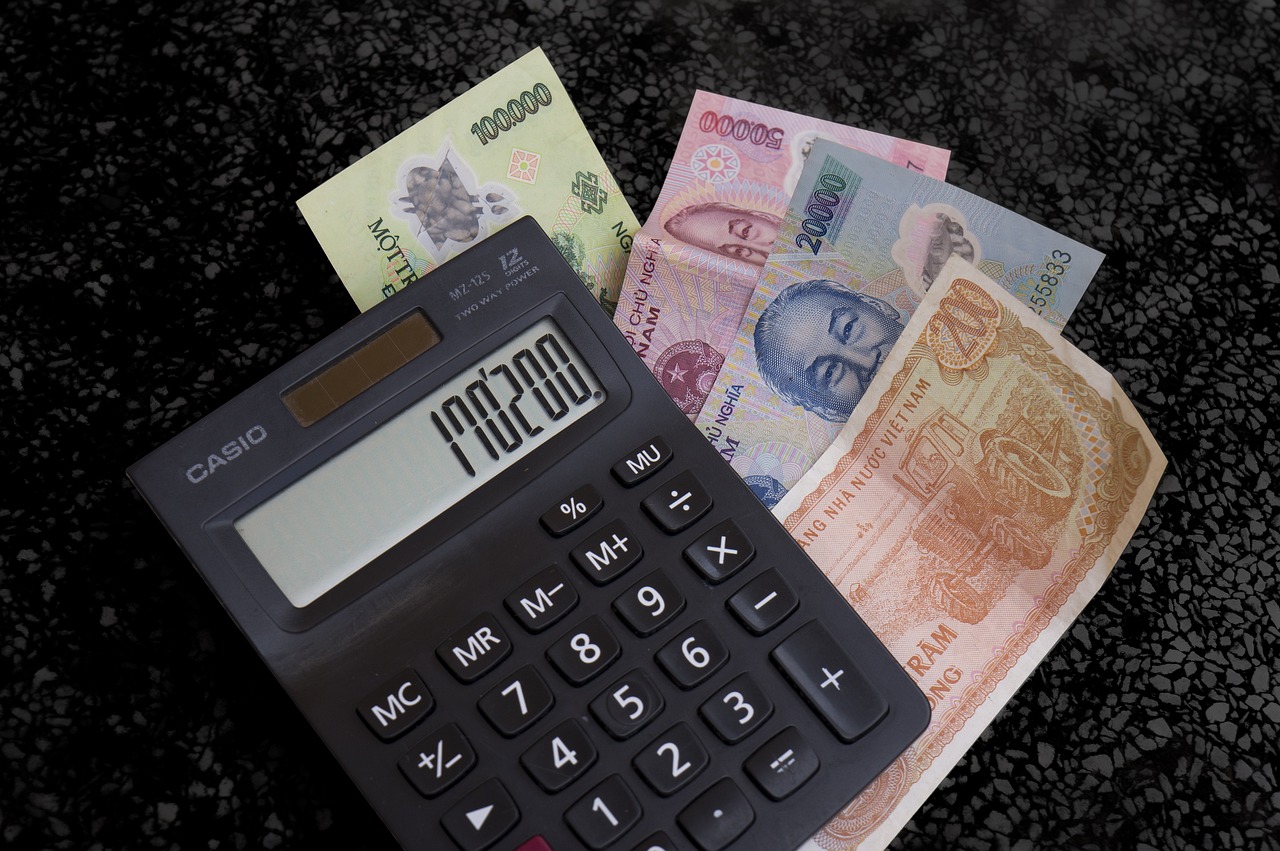Do You Need a Bank Account in Pakistan to Send Money? Answers to Common Questions on International Transfers
GPT_Global - 2024-03-23 06:30:03.0 1041
Do I need to have a bank account in Pakistan to make a money transfer?
When it comes to making a money transfer to Pakistan, having a bank account in the country is not always necessary. With the growing trend of digital banking and money transfer services, there are now various options available for sending money to Pakistan without the need for a local bank account.
One of the most popular methods to transfer money to Pakistan is through online money transfer services. These platforms allow you to send money directly to an individual's bank account or to a designated pickup location, such as a bank branch or a money transfer agent. This eliminates the need for a local bank account as the recipient can simply retrieve the funds in cash.
If you prefer to send money directly to a bank account, some providers offer the option to deposit funds into a designated account without the need for a local bank account. However, do note that this service may come with additional fees and longer processing times compared to cash pickup options.
Another alternative to sending money without a local bank account is through mobile wallets. By using mobile money transfer services, you can send money directly to the recipient's mobile wallet, which they can then use to make purchases or withdraw funds at designated cash-out points. This method is not only convenient but also cost-effective for both the sender and the recipient.
Lastly, if you have a bank account in your home country, you can also utilize their international remittance services to transfer money to Pakistan. Most banks have partnerships with local banks in Pakistan, allowing for seamless and secure fund transfers. However, do check with your bank for any applicable fees and exchange rates.
In conclusion, while having a bank account in Pakistan certainly makes it easier to receive money, it is not a requirement when it comes to making a money transfer. With the availability of various digital and mobile money transfer services, sending money to Pakistan has become more accessible and convenient than ever before. So, whether you have a local bank account or not, you can still easily send money to your loved ones in Pakistan.

Are there any tax implications for sending money from Pakistan?
When sending money from Pakistan, it is important to understand the potential tax implications. Remittance refers to the transfer of money from one country to another, and it is a common practice for individuals and businesses in Pakistan to send money internationally. However, there are certain tax considerations that should be taken into account to ensure compliance with local laws and regulations.
Firstly, it is important to note that Pakistan has a withholding tax on remittances to foreign countries. This means that a certain percentage of the remittance amount will be deducted and paid to the government as tax. The current withholding tax rate for remittances from Pakistan is 0.6%. For example, if you are sending $1000 from Pakistan, $6 will be deducted as tax and you will receive $994 at the destination.
Additionally, there may be taxes on the income earned from sending money abroad. This can include any interest or other earnings that may be generated while the money is in transit or being held in a foreign account. These taxes may vary depending on the country where the money is being sent and the laws and regulations governing foreign income in that country.
It is also important to keep track of any exchange rate adjustments that may occur during the remittance process. Fluctuations in currency values can also have tax implications, and it is important to consult with a tax advisor to determine the potential tax implications of sending money to a particular country.
In conclusion, sending money from Pakistan may have tax implications in terms of withholding taxes and foreign income taxes. It is crucial to understand and comply with these tax obligations to avoid any legal issues. Consulting with a tax professional can help to ensure that the remittance process is done properly and in accordance with local laws and regulations.
Can I transfer money from Pakistan to a non-bank account, such as a mobile wallet?
Pakistan has a thriving remittance business, with millions of people sending money back to their families and loved ones every year. While bank accounts are often used for these transfers, many people are now turning to non-bank accounts, such as mobile wallets, for convenience and efficiency. But can you transfer money from Pakistan to a non-bank account? The answer is yes, and here's how.
Firstly, it's important to note that not all mobile wallets in Pakistan are able to receive international remittances. However, there are some popular options that do offer this service, such as EasyPaisa, JazzCash, and UBL Omni. To send money to a mobile wallet, you will need to use a licensed money transfer operator or a bank that offers this service.
Next, you will need to provide the recipient's mobile wallet number, along with the amount you wish to send, to the money transfer operator or bank. The funds will then be credited to the mobile wallet within a few hours, depending on the service provider's processing times. This is often faster than traditional bank transfers, which can take a few days to clear.
It's worth noting that there may be fees associated with sending money to a mobile wallet, so be sure to check with the money transfer operator or bank before initiating the transfer. Additionally, the exchange rate may also differ from bank to mobile wallet, so it's important to compare and choose the most favorable option.
In conclusion, transferring money from Pakistan to a non-bank account, such as a mobile wallet, is possible and can be a convenient option for both the sender and recipient. With the increasing use of technology and mobile money services, this method of remittance is expected to become even more popular in the future. Just make sure to choose a reputable and licensed service provider for a safe and hassle-free experience.
What happens if there are any issues or delays with a money transfer from Pakistan?
When sending money from Pakistan to another country, it is important to know what to expect and what to do in case there are any issues or delays with the money transfer. While remittance companies strive to provide fast and efficient services, there are a few factors that could potentially cause delays or problems with the transfer process.
One of the main reasons for money transfer issues or delays is incorrect recipient information. It is crucial to double check the recipient’s name, bank account details and contact information before initiating the transfer. Any errors in these details can result in delays or even a failed transfer. Make sure to verify all information with the recipient beforehand to avoid any complications.
Another possible reason for delays with a money transfer is network or technical issues. Remittance companies rely on communication networks and technologies to process transfers, and any disruptions in these systems can cause delays. In such cases, contacting customer service for assistance is recommended. Most remittance companies have 24/7 customer support to help resolve any issues efficiently.
Delays can also occur if there are security concerns or suspicious activity involved in the transfer. Remittance companies have strict security measures in place to comply with regulations and prevent money laundering. As a result, transfers may be put on hold for verification purposes. In such situations, providing additional documentation or providing an explanation for the transfer can help expedite the process.
In rare cases, transfers can also be delayed due to unexpected events such as natural disasters or political turmoil. These situations can disrupt the banking systems and cause delays in processing transfers. If this occurs, the best course of action is to stay in touch with the remittance company for updates and be patient as they work to resume normal operations.
In conclusion, while delays or issues with money transfers from Pakistan are not common, they can happen due to various reasons. It is important to ensure accurate recipient information, be aware of potential network or security issues, and stay informed in case of unforeseen circumstances. By taking these precautions and being prepared, you can have a smooth and hassle-free experience when sending money internationally.
Are there any age restrictions for sending money from Pakistan?
Remittance is the process of sending money from one country to another. It is a popular way for people to support their families and loved ones who live in different countries. Pakistan is one of the top countries in the world when it comes to remittance, with millions of people sending money back home every year. If you are planning to send money from Pakistan, you may be wondering if there are any age restrictions that you need to be aware of.
The good news is that there are no specific age restrictions for sending money from Pakistan. Anyone who is legally allowed to handle financial transactions can send money from Pakistan. This means that individuals over the age of 18, who have a valid form of identification, can send money from the country without any problems.
However, it is important to note that some money transfer companies may have their own age restrictions in place. For example, some companies may require individuals to be at least 21 years old to use their services. So, it is always a good idea to check with the specific company you plan to use before sending money.
Another important factor to consider is the source of funds for the remittance. If the money being sent is from a minor, then a guardian or parent will need to provide the necessary documentation and authorization for the transaction to take place. This is to ensure that the funds are being sent with the proper consent and approval.
It is also worth mentioning that individuals under the age of 18 are not legally allowed to open bank accounts in Pakistan. So, if you are a minor looking to send money from Pakistan, you will need to have a trusted adult handle the transaction on your behalf.
In conclusion, there are no age restrictions set by the government of Pakistan for sending money from the country. However, individual money transfer companies may have their own age restrictions in place. Additionally, minors will need to have a parent or guardian handle the transaction on their behalf. If you have any further questions or concerns, it is best to consult with a financial advisor or the specific money transfer company before making any transactions.
Can I transfer money from Pakistan to a friend or family member's bank account?
Remittance Business: Transferring Money from Pakistan to a Friend or Family Member's Bank Account Are you living in Pakistan and looking to send money to your loved ones abroad? With the rise of globalization, it has become easier than ever to transfer money between countries. However, the process can still be daunting, especially when it comes to sending money to a friend or family member's bank account. Fortunately, there are a few simple steps that you can follow to make this process a breeze. The first step in transferring money from Pakistan to a friend or family member's bank account is to select a reliable remittance service provider. There are many companies out there that offer money transfer services, but it is essential to choose one that has a track record of delivering on time and with minimal fees. Do your research and read reviews before making a decision. Once you have selected a remittance service provider, you will need to provide them with the recipient's bank account details. This typically includes the account number, bank name, and branch address. It is crucial to double-check these details to avoid any delays or errors in the transfer. Next, you will need to deposit the desired amount of money to the remittance service provider. This can be done through various methods, such as direct bank transfer, credit/debit card, or cash at a physical location. Many remittance service providers also offer online options for added convenience. After the transaction is completed, both you and the recipient will receive a confirmation message. The recipient should expect to receive the funds within a few business days, depending on the remittance service provider and the receiving bank's policies. In conclusion, transferring money from Pakistan to a friend or family member's bank account is not as complicated as it may seem. By following these simple steps and choosing a reputable remittance service provider, you can ensure a smooth and hassle-free process. So don't let the distance stop you from supporting your loved ones financially. Try out a remittance service today and stay connected with your family and friends across borders.Are there any limits on the purpose of a money transfer from Pakistan?
When it comes to money transfers from Pakistan, there are certain restrictions and limitations in place that individuals need to be aware of. These limitations are put in place by the State Bank of Pakistan, the central bank of the country, in order to regulate and monitor cross-border money transfer activities.
The first limitation is on the purpose of the money transfer. The State Bank of Pakistan allows money transfers for specific purposes such as family maintenance, education fees, medical expenses, and investments. Transfers made for any other purposes are not allowed and may result in a violation of the law.
Another limitation is on the amount that can be transferred. Individuals can only transfer up to $10,000 or equivalent in other currencies per transaction. If the transfer exceeds this limit, they would need to provide relevant documentation and justifications for the higher amount.
There are also restrictions on the recipient of the money transfer. The recipient must be a resident of the country where the transfer is being made. The funds cannot be sent to an individual or entity that is on the Specially Designated Nationals (SDN) list, which includes individuals and organizations involved in terrorist activities or money laundering.
Furthermore, the exchange rate for the money transfer is determined by the State Bank of Pakistan. This means that individuals cannot choose the exchange rate for their transfer and may have to incur additional charges if the currency conversion is required.
In conclusion, there are certain limits on the purpose of a money transfer from Pakistan. It is important for individuals to ensure that their transfer complies with the regulations set by the State Bank of Pakistan to avoid any legal issues. It is recommended to consult with a trusted remittance service provider for guidance on the proper procedures and requirements for a successful transfer.
About Panda Remit
Panda Remit is committed to providing global users with more convenient, safe, reliable, and affordable online cross-border remittance services。
International remittance services from more than 30 countries/regions around the world are now available: including Japan, Hong Kong, Europe, the United States, Australia, and other markets, and are recognized and trusted by millions of users around the world.
Visit Panda Remit Official Website or Download PandaRemit App, to learn more about remittance info.



